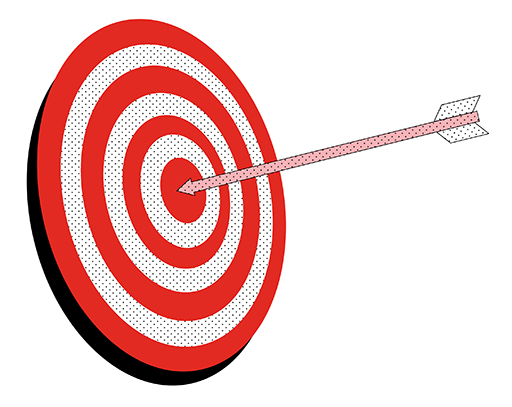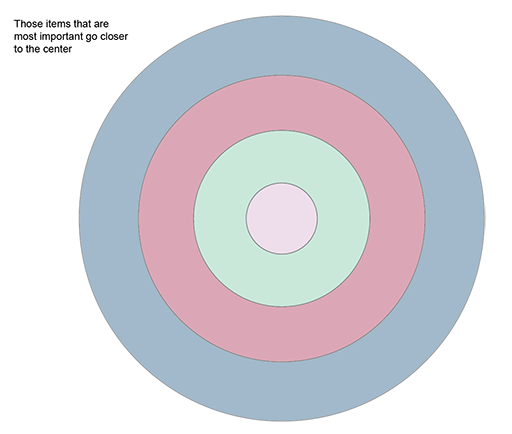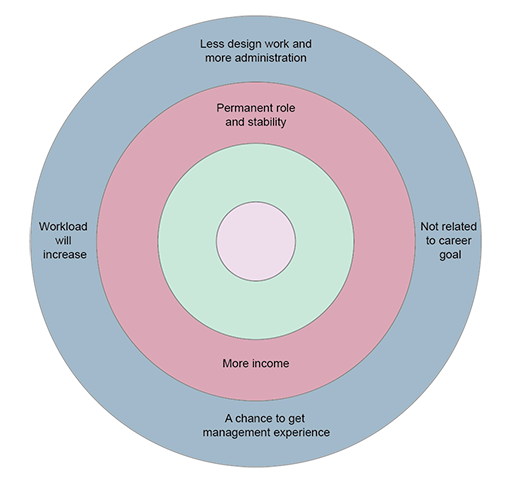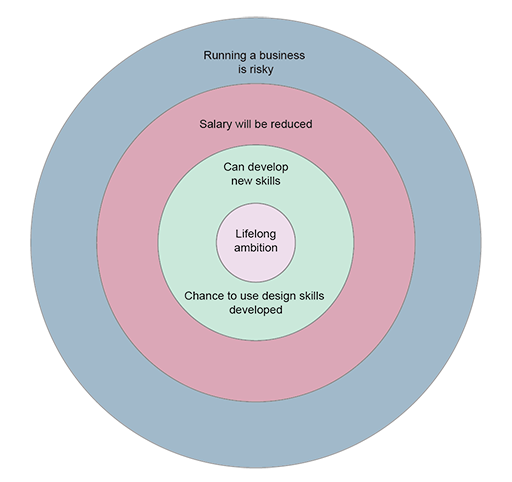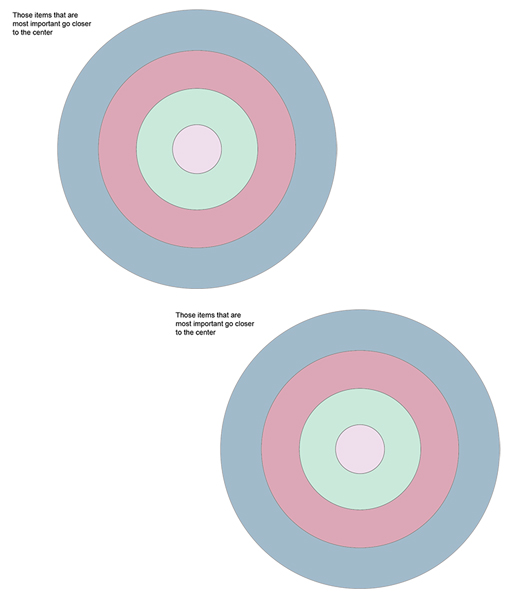7 Target your next move
Having gone through the sections above you may have a clearer idea of job options that you want to consider. This could be progressing in your current role, taking on a different position, changing your work pattern or role, working for yourself or any other option that is suitable to you.
The next step will be to investigate these options. This can seem daunting and you may be concerned about making the right decision. Breaking down your decisions into bite sized ones can help you to be clearer about what you want and help you feel more positive towards moving forward. Remember that you can discuss these options with others at your work, those close to you and with careers professionals.
Using this bullseye or target activity (designed by Tobias Lundgren, a well-known clinical psychologist and psychotherapist) will help to clarify what is most important to you while providing a useful a way of visualising your wants and needs. This approach allows you to weigh up your options by analysing information and facts.
Activity 5: Bullseye
This activity can provide clarity on what is most important to you. Sometimes you can have many things that are important and it’s difficult to see where they all fit in. This activity is a great way to visual your wants and needs. The closer you place factors to the centre or the ‘bullseye’, the closer it aligns to your values and wants.
Here’s an example:
Shabana has been working as a graphic designer for the past 12 years and has developed expertise in managing design briefs and working with a variety of clients. An opportunity has come up in the company for a senior graphic designer that will be a step up. While Shabana enjoys her work, she has always been interested in using her skills to work for herself and this could be the best time for her to make a change and set up her own graphic design business as her children are now independent.
See below how Shabana uses the model to help make her decision/ which option should Shabana choose?
Option 1: promotion to senior graphic designer
- A chance to get management experience
- More income
- Workload will increase
- Less design work and more administration
- Not related to work goal
- Permanent role and stability
The points that are most important to you go in the centre (closest to the bulls eye).
Option 2: Set up own graphic design business
- Lifelong ambition
- Chance to use design skills developed
- Salary will be reduced
- Can develop new skills
- Running a business is risky
(Most important items go in the centre.)
Discussion
Shabana found that what was most important to her was to set up her own business which had been a lifelong ambition and that she could use the skills she had developed and refined in her 12 years’ experience as a graphic designer. By adding the points about reduced salary and the risks involved for the self-employment option, means that Shabana can investigate these and think of actions she can take. This has also given her the basis of an in-depth discussion she can have with her employer about opportunities within the company of taking on design projects as self-employed.
Shabana could also talk through her preferred option with a careers adviser [Tip: hold Ctrl and click a link to open it in a new tab. (Hide tip)] , people she knows who work for themselves or those close to her.
Recreate your own bullseye diagram similar to the one below, to weigh up a decision that you are facing. You can download a word version here. This document is not available for download in this format. Please refer to the OpenLearn course to access this activity.
You can return to the activity as many times as you need to.
There are many different approaches to decision making and if you wanted to explore other ones, you can do so here The Open University: Decision Making Models.

